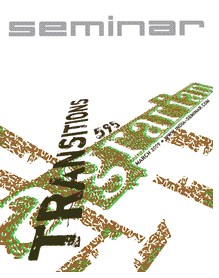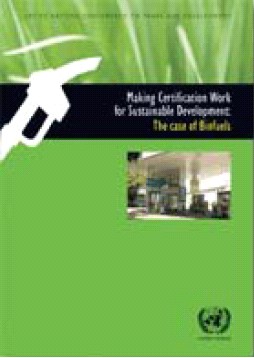I guest-edited the March 2009 issue of Seminar Magazine… the contents and links are below.
Seminar Magazine Issue #595
March 2009


Symposium Participants
THE PROBLEM
Posed by Bhaskar Goswami, Forum for Biotechnology and Food Security, Delhi
MEDIA AND THE AGRARIAN CRISIS
Kalpana Sharma, independent journalist and columnist, Mumbai
COPING WITH COMPLEXITY
C. Shambu Prasad, Associate Professor and Coordinator, Rural Management and Library Services, Xavier Institute of Management, Bhubaneswar
AT THE EDGE OF A PRECIPICE
Suneet Chopra, Joint Secretary, All India Agricultural Workers’ Union, Delhi
CONTRACT FARMING FOR AGRICULTURAL DEVELOPMENT
Sukhpal Singh, The Center for Management in Agriculture (CMA), Indian Institute of Management, Ahmedabad
LEARNING FROM PEOPLE
Anil K. Gupta, Professor, Indian Institute of Management and Executive Vice Chair, National Innovation Foundation, Ahmedabad
TOWARDS SUSTAINABLE FARMING PRACTICES
Bharat Dogra, independent journalist and columnist, New Delhi
TRANSGENIC CROPS: A QUESTIONABLE OPTION?
Kavitha Kuruganti, Member-Secretary, Coalition for a GM-Free India, Jaitu, Faridkot
DIVERSIFICATION: A PLOY TO REDUCE SUPPORT TO AGRICULTURE?
T.N. Prakash Kammardi, Professor of Agricultural Economics, and Editor, ‘Hittalagida’, University of Agricultural Science, GKVK, Bangalore
PUSHING BIG BOX RETAIL IN AGRICULTURE
Dharmendra Kumar, India-FDI Watch, Delhi
REVIVING AGRICULTURE
Devinder Sharma, Forum for Biotechnology and Food Security, Delhi
WAYS OF SEEING
P. Sainath, Rural Affairs Editor, ‘The Hindu’, Mumbai
BOOKS
Reviewed by Iain Boal, Bhaskar Goswami and Harsh Sethi
FURTHER READING
A select and relevant bibliography
COMMENT
Festival Diary: Hi-jinks in Jaipur, received from Ananya Vajpeyi, Assistant Professor of History, University of Massachusetts, Boston
BACKPAGE


